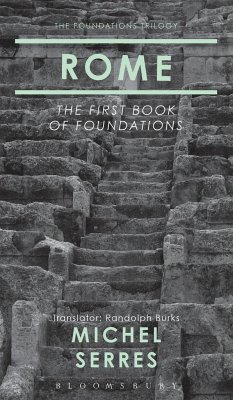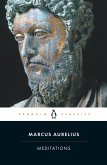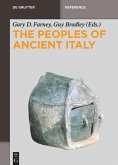Michel Serres first book in his 'foundations trilogy' is all about beginnings. The beginning of Rome but also about the beginning of society, knowledge and culture. Rome is an examination of the very foundations upon which contemporary society has been built.With characteristic breadth and lyricism, Serres leads the reader on a journey from a meditation the roots of scientific knowledge to set theory and aesthetics. He explores the themes of violence, murder, sacrifice and hospitality in order to urge us to avoid the repetitive violence of founding. Rome also provides an alternative and creative reading of Livy's Ab urbe condita which sheds light on the problems of history, repetition and imitation.First published in English in 1991, re-translated and introduced in this new edition, Michel Serres' Rome is a contemporary classic which shows us how we came to live the way we do.
Hinweis: Dieser Artikel kann nur an eine deutsche Lieferadresse ausgeliefert werden.
Hinweis: Dieser Artikel kann nur an eine deutsche Lieferadresse ausgeliefert werden.
In this remarkable book Michel Serres doesn't just retell the stories that lie at the foundation of Rome, but takes us back to the very idea of foundation as such. With Livy as his guide, Serres brilliantly traces the way the myth, legend, history, reality and representation of Rome open on to one another. The city itself is described as a multiplicity, as Serres explores the emergence of form in history, time, space, discourse, order, and life. David Webb, Professor of Philosophy, Staffordshire University, UK








